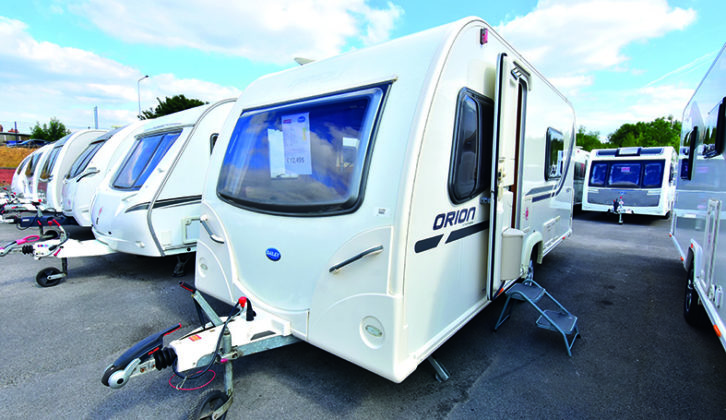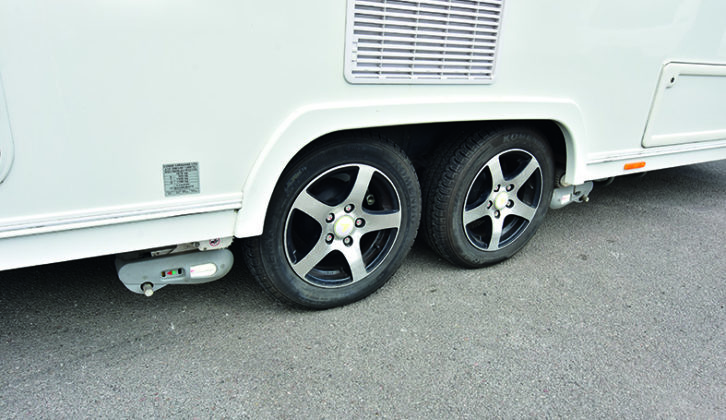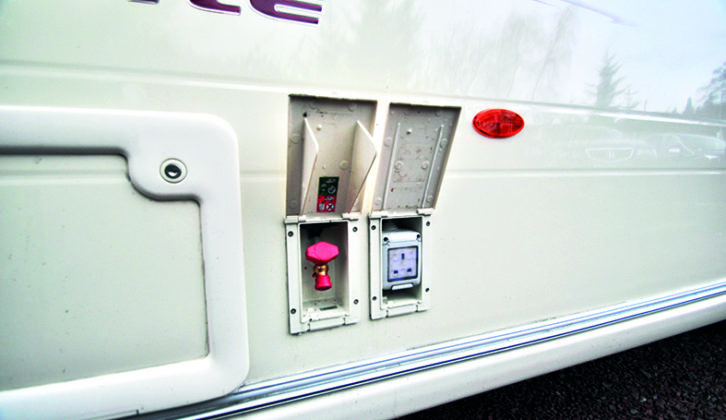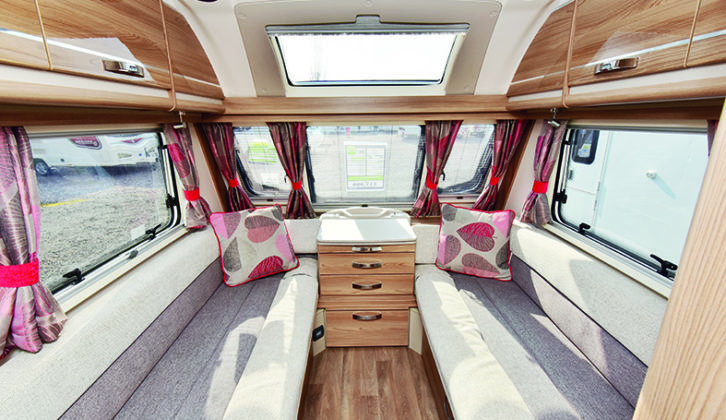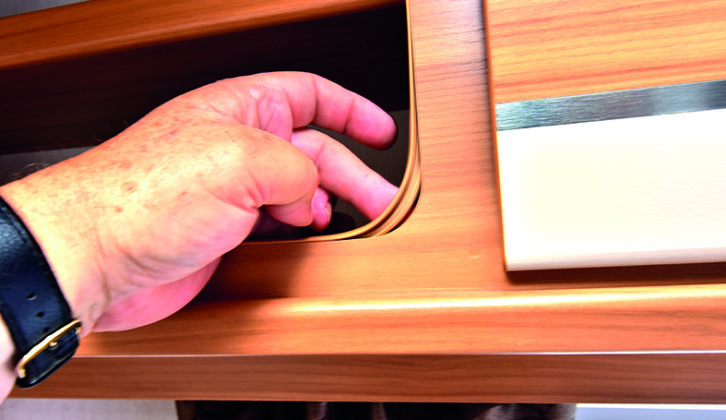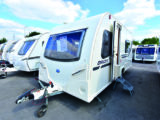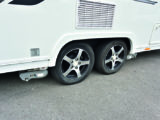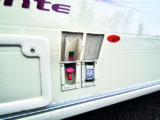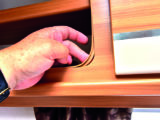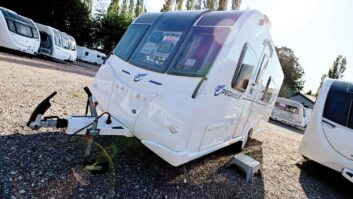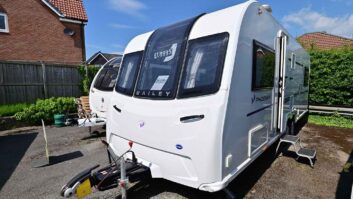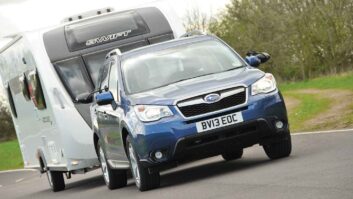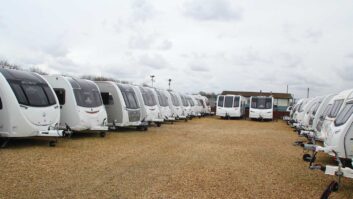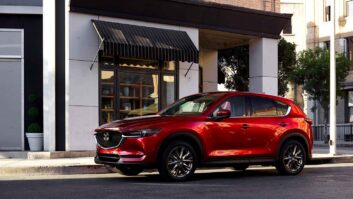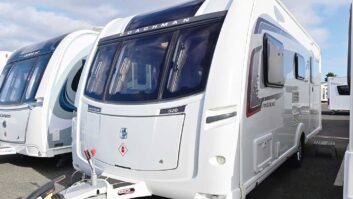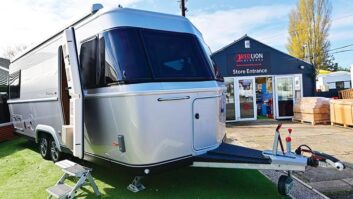In 50 years I’ve seen nothing quite like this. Dealerships are having to hunt for used stock, while many buyers are getting desperate. As one dealer told me: “I can sell anything!”
Canny customers can still track down a bargain, although it’s more important than ever to do your homework. Nobody wants to end up with a duff tourer that needs endless work, or a model they will find hard to sell in future.
And that’s where this guide comes in – 10 top tips to help you avoid the potential pitfalls of buying pre-owned, so you can buy the best used caravan for you…
1.
With stock levels so low at the dealers, browsing the forecourts at the moment is not going to see you feeling spoilt for choice.
Before you head off to the showrooms, take a good look at your requirements. How many berths will you need? What kind of campsites do you plan to use? Full-facility sites provide showers and toilets, so a large washroom in your caravan might not be a priority. Look for the caravan layouts that will meet your needs and bear in mind, too, that fixed beds take up a fair amount of floor space.
In addition, decide whether you want a single-axle or a twin; twin-axles are ideal if you’re planning a seasonal pitch.
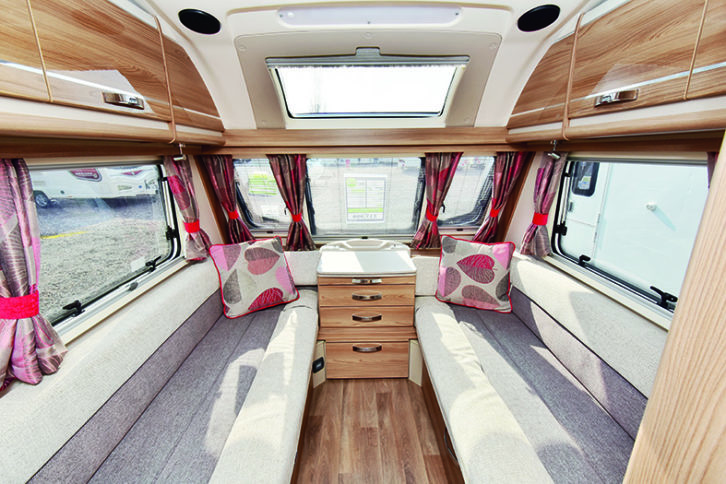
2.
Set your budget, allowing for extras such as water containers, gas, battery, a TV and extra crockery.
Once you have decided on the budget and your preferred layout, you can start searching. Our advice here is to go to a reputable dealership, because that way, you will have some come-back if anything does go wrong, and the van will have been properly inspected.
Yes, you’re going to pay more than you would in a private sale – although these days, quite a few private sellers seem to be selling at dealership prices!
Dealers will also provide an expert run-through of the caravan’s equipment, showing you how it all works.
3.
Buying privately can be a minefield – I’ve seen some great buys, but also some very damp caravans.
If you can, check the private buyer’s background (are they traders selling off their drive?).
You also need to ensure that you see all of the van’s relevant documents – is it properly paid for, or are there outstanding loans attached to it? Worse still, has it been stolen?
For peace of mind, a CRiS check will provide a comprehensive history for any pre-owned tourer.
If you are first timers, when you view a private-sale caravan, try to take along a friend who is an experienced caravanner and will know what to look for regarding damage and damp.
If the van is of real interest, it’s worth paying for a mobile caravan engineer to check it over in more depth, using a damp meter. They will be able to interpret the readings and assess the cost of any repairs.
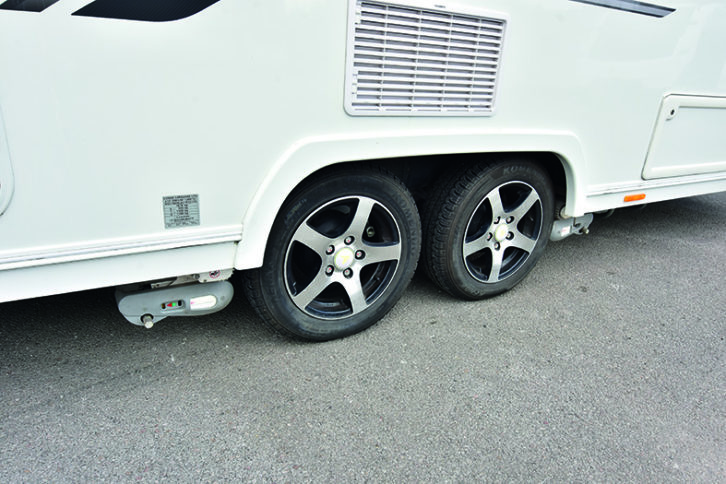
4.
Extras are added to the van when new, usually by the factory or as a dealer retrofit. Dealers also check the safety of any DIY additions.
One particularly useful extra to look for is a motor mover, which makes child’s play of manoeuvring your tourer.
In addition, keep an eye out for barbecue points, external mains sockets and TV aerials. Bike racks are more popular these days, as are solar panels.
5.
Check the van carefully, even when buying from a dealer. Look closely and you might spot a missing piece of trim. Flyscreens and blinds get plenty of use over the years, so check them for damage.
Most importantly, look for signs of damp – discoloured wallboards or ceilings are a give-away. Look for evidence of damp in washroom corners, and check for cracking in the shower tray.
Spongy floor areas are a bad sign – damp can be expensive to repair if left untended.
Inspect sinks and basins for scratching, and try the seating too – has it lost its support? Don’t forget the mattresses.
If you spot anything that is fixable, ask the seller to sort it out or adjust the price.
Try and find out about the original spec, to ensure items such as the CD/radio or perhaps a TV are still being included.
Examine the van’s service records, for proof that it has been properly looked after.
Check that heating and water systems, the mains charger and internal lighting are working. Last but not least, inspect the tyres – their age might mean they need replacing.
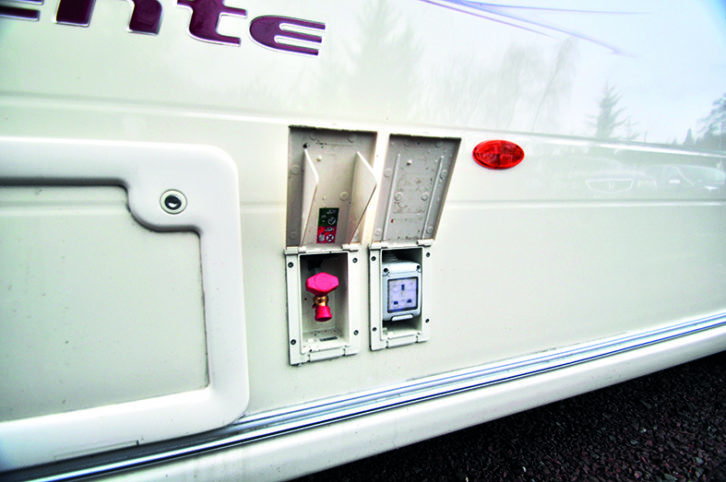
6.
Dealer specials (models produced with exclusive extras for a specific dealership) can be a great pre-owned buy. You’ll probably pay a bit more than you would for a standard model, but those extras can be well worth it.
If you are buying an older, imported tourer, check about spare parts. Bear in mind that entrance doors might not be on the ‘right’ side for the UK.
7.
Apart from private sellers and specialist dealers, the occasional car dealership will sometimes have a tourer on the forecourt, usually acquired in a part-exchange. Treat this as a private sale, because car dealerships are not specialists in caravans!
Apart from reputable dealers, the usual caveats apply, too, so beware potential scams. If something looks too good to be true, it is – walk away.
8.
In a more normal market, we would always say it’s worth trying to haggle. But these days, with stock so low, you might do so at your peril.
Buying from a dealership, you’re unlikely to see much of a discount on the price. There’s never any harm in asking, but don’t expect miracles.
Alternatively, you could try requesting some extras to be thrown in, such as a battery, water containers or gas. Some dealers offer a beginner’s pack, providing useful essentials.
The days of haggling for big discounts are over for the time being, although you might get a mover (recommended), or an awning (another good extra).
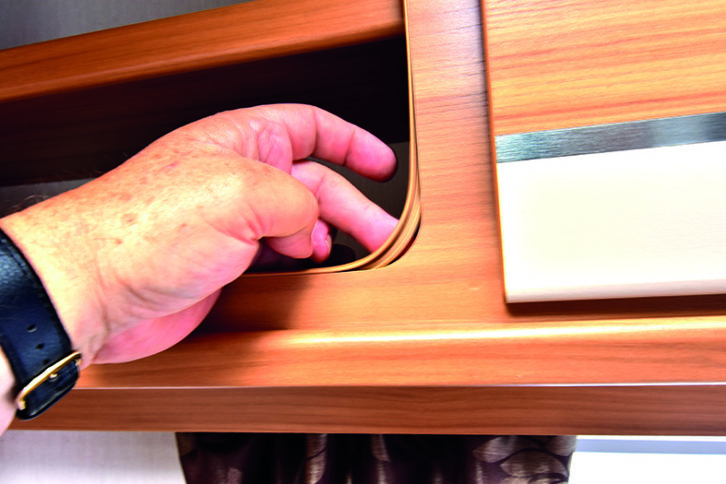
9.
If you’re after a family tourer with bunks, you’ll already know they are rarer than ever these days.
Don’t let that rarity rush you into buying: you’ll still need to do all of the usual checks.
Bear in mind, too, that family tourers tend to get pretty hard usage, so it’s more important than ever to inspect potential buys, especially for excessive wear and tear, or damage.
Fixed-bed layouts remain popular for couples, but these are usually well looked after, so present fewer problems.
Two-berths are also selling well, mainly to first-timers.
10.
Buying pre-owned always presents its own challenges, and they have been magnified in the current market; but if you are patient and look around, you should be able to find just the right caravan for you.
When you’re looking around, you might travel further afield, but bear in mind that a dealer miles away from where you live could be a problem if you have any issues to resolve.
Finally, remember that if you are buying an older model, as long as it’s dry and roadworthy, it does the same job as a shiny new one. The market is tough, but the bargains are out there – so happy hunting!
If you liked this… READ THESE:
Best caravan manufacturers – the 10 best caravan brands
Used Van Buyer: Lightweight Caravans
Used Van Buyer: Luxury Layouts
Undecided on whether to buy a used caravan or a used motorhome? Head across to our sister site, Practical Motorhome, for advice on buying a pre-owned motorhome.
If you’ve enjoyed reading this article, why not get the latest news, reviews and features delivered direct to your door or inbox every month. Take advantage of our brilliant Practical Caravan magazine SUBSCRIBERS’ OFFER and SIGN UP TO OUR NEWSLETTER for regular weekly updates on all things caravan related.
Remember that if you are buying an older model, as long as it's dry and roadworthy, it does the same job as a shiny new one
